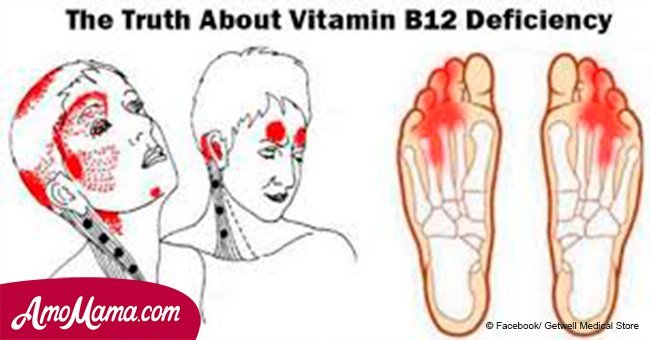
It's important. Everything you need to know about vitamin B12
This is a very important vitamin for the functioning of the body, and many don't know they are suffering from a deficiency.
While many people overlook vitamin B12, it is very important that the body has an abundance of it, as it affects the metabolism of body cells.
An extended period of deficiency could lead to a number of other neurological conditions and long-term diseases.
But in order to treat a deficiency, one must first be able to read the signs of it. Being able to do so could be of great use later on, as it will help to prevent serious health problems.
The symptoms of vitamin B12 deficiency are as follows: Eye Issues, forgetfulness, pale skin, unexplained fatigue, muscle weakness, dizziness, pins and needles.
The major health benefits of vitamin B12 are numerous.
1. Aids in digestion
B12 helps to produces the digestive system's enzymes, and helps to break down certain foods. It also helps to feed healthy bacteria in the gut, while killing harmful bacteria. This helps to prevent a number of digestive disorders from developing.
2. Good for bone health
This vitamin is particularly recommended for people who suffer from osteoporosis and other bone problems that produce increased levels of homocysteine. B12 helps to lower these levels.
3. Preventing strokes and heart disease
Heart disease is a leading cause of deaths in the United States. High levels of homocysteine contribute to heart disease and strokes, and just as in the bones, B12 helps to control these levels to decrease the risk of suffering from heart disease.
4. Prevents anemia
Vitamin B12 helps stimulate the production of erythrocytes, and this helps to prevent megaloblastic anemia. This anemia manifests itself through chronic fatigue and weakness.
5. Prevents Alzheimer's
It is widely believed that B12 can help to prevent and treat Alzheimer's disease. For anyone wanting to avoid the terrible disease, vitamin B12 injections or supplements are a good idea.
6. Helps lower depression
It is said that B12 can help to decrease depression.
7. Boosts energy level
The vitamin keeps the cells well-fed, helping to stave off fatigue and keep the body full of energy. The metabolism requires B12 to transform carbs into sugars, making it a vital part of the energy production system.
Fortunately, there are plenty of ways in which one can get vitamin B12 into the body through natural means, if injections do not appeal. There are a number of foods that are rich in the vitamin.
Lamb – 0.8 mg in 3 oz
Salmon – 19.5 mg in one filet or 108 g
Chicken and beef liver – 81 mg in 3 oz
Beef tenderloin – 0.9 mg in 3 oz
Herring – 18.7 mg in one filet or 143 g
Raw milk – 1 mg in 1 cup
Mackerel – 15.3 mg in 3 oz
Turkey – 1.1. mg in 3 oz
Trout – 9.1 mg in one fillet
Sardines – 13.3 mg in one cup
Tuna – 9.3 mg in 3 oz
Plant-based milk – coconut milk, almond milk, and soymilk
Cheese
Cereals
Nutritional yeasts
It is important to be on the lookout for the symptoms of vitamin B12 deficiency, in order to be able to treat them and avoid health problems later in life.